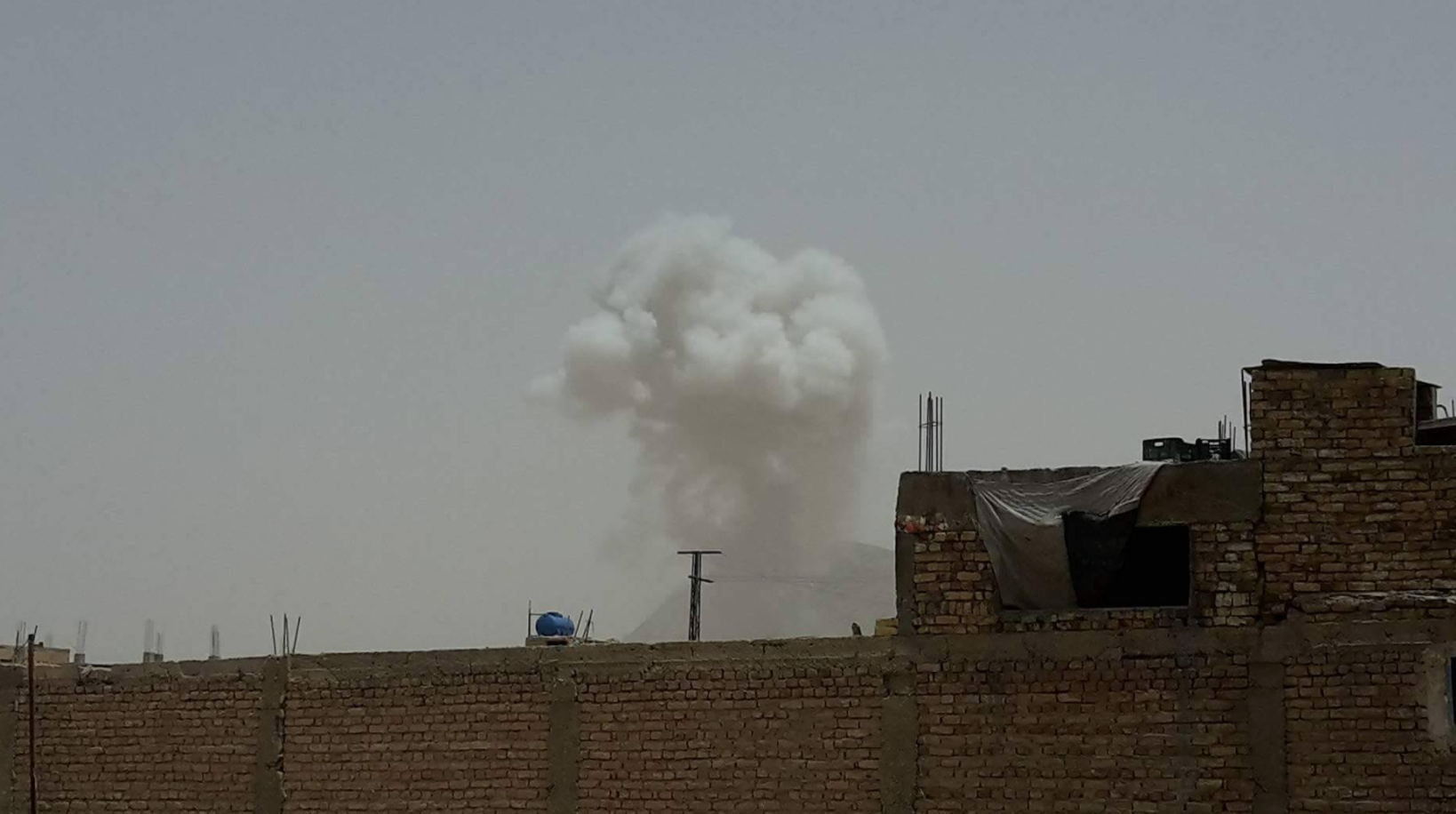Kandahar attack: Explosion near one of Afghanistan's largest cities only a day after Herat attack
Incident in Taliban heartland comes just one day after bloody Isis suicide bombing of Shia mosque in normally peaceful Herat city

An explosion has been reported in Afghanistan's restive Kandahar province, just one day after an Isis suicide attacker at a Shia mosque killed 32 people in the city of Herat.
Local media reported on Wednesday it had been caused by a suicide bomber who rammed a small pick-up truck laden with explosives into a security forces convoy containing international troops near the airport south of Kandahar city.
The area is home to a large international military base.
Police official Zia Durrani confirmed the attack had taken place, as did a Kabul-based spokesperson for the Nato-led military coalition operating in the country.
There are a number of casualties, officials said, but details on their nationality or how many were killed or injured are not yet known.
Taliban spokesperson Qari Yosuf Ahmadi said the militant group was responsible for the attack. He claimed 15 soldiers had died, but the Taliban often exaggerate losses inflicted on the enemy.
The incident is the latest in a wave of militant violence to hit civilians and the security forces amid an insurgent offensive across the country.
It comes as the authorities in Herat province tightened security for a mass funeral for the 32 victims of an attack on a Shia mosque during evening prayers on Tuesday in the usually peaceful eastern city.
As well as the Herat attack - which Isis claimed on Wednesday - in the last week, an Isis suicide bomb and gun battle outside the Iraqi embassy in Kabul killed at least two people, and a Taliban offensive on an army base in Kandahar killed 26.
Also on Wednesday morning, the Taliban ambushed and killed Jaghatu District Governor Manzur Hussain and a passenger in his car, Ghazni provincial police chief Mohammad Mustafa Mayar said.
At least 1,700 people have been killed in attacks carried out by either the Taliban or Isis in the first six months of 2017.
Although the Taliban lost control of Afghanistan following the 2001 US invasion, it has steadily regained ground since the majority of US and allied troops left in 2014, and is now in control of some 40 per cent of the country.
The chaos has also allowed Isis to gain a foothold in eastern provinces.
The unrelenting violence has left many angry with the weak and divided government of President Ashraf Ghani, whom they say is not doing enough to protect the people from extremist violence.
Protests calling on the president and other high ranking ministers to either combat the violence or resign are expected on Thursday.
In July US President Donald Trump bowed to pressure from the Pentagon to allow the military to set its own troop levels to prevent the precarious security situation from deteriorating further.
A total of 13,000 US and Nato soldiers are currently in the country. While it is expected that 4,000 extra troops will be deployed, there is still no coherent strategy from the Trump administration on the US’s future involvement.
Join our commenting forum
Join thought-provoking conversations, follow other Independent readers and see their replies
Comments